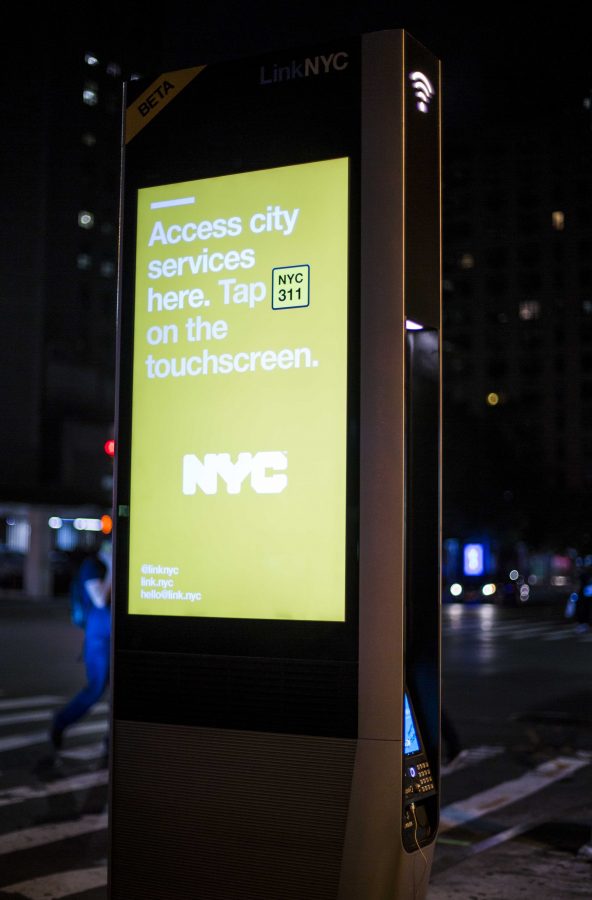LinkNYC Has Explicit Consequences
LinkNYC stations have been installed on the street along 3rd Ave to provide city services, however they’ve been used for more than just quick WiFi access.
September 19, 2016
Walking around New York in the last few months, you may have noticed bright, new kiosks popping up on street corners in place of old phone booths. These LinkNYC stations — which provide Wi-Fi, web browsing and phone charging — are the first public product of Sidewalk Labs, a startup spun out of the Google NYC offices with the goal of creating a completely connected New York.
The service plans to install a network of 7,500 LinkNYC terminals across the five boroughs, providing improved access to data and communication for New Yorkers. One of these new locations will be directly outside of NYU’s Third North residence hall on Third Avenue.
It is a project rooted in a noble cause and one that many New Yorkers, like current Third North resident and Tisch freshman Jazmin Palmer, are
optimistic about.
“When I first got to New York I was getting lost all the time and was running out of cellphone data,” Palmer said. “It would have really been helpful to have access to Wi-Fi and maps all around the city.”
However, the project has already been subject to concern, with reports of people setting up camp around the terminals for hours on end and some using the terminals to view explicit material.
Some have expressed concern over what this new, unfettered access could bring to local communities and businesses. In addition, Officer William, a Public Safety Officer at Third North, said he worries about the privacy of the students using them as well.
“There are lots of ways to manipulate technology and [there] could be issues with private media on devices that connect to these stations,” William said. “I do think access to some things should be restricted.”
Other students like Gallatin sophomore Evan Berk simply see these potential abuses as just part of life in the city.
“There are already issues with public behaviors,” Berk said. “It’s not a new safety worry.”
Since hearing complaints, Sidewalk Labs has moved to curb unrestricted browser access while leaving key features such as maps. The discussions are similar to those when the internet first entered libraries and public schools, reflecting a society needing to grapple with ever improving, and evermore visible, technology.
A version of this article appeared in the Monday, Sept. 19 print edition. Email Stephen Malkowicz at [email protected].












































































































































